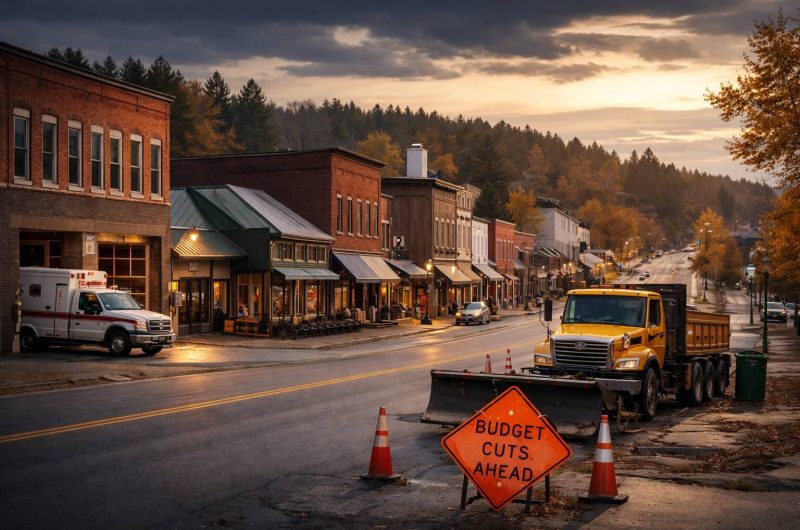Whispers, Noise & Rumors: June 15, 2020

STATE REVENUE WOES CONTINUE AS LEGISLATORS AND GOVERNOR BEGIN TALKS: Four months remain in this fiscal year, and the state has to confront a $2.2 billion deficit in its budget. It then has to move on to an already mounting revenue deficit for next fiscal year that begins October 1st.
This week, Rural Insights continues its presentation of articles with objective data and fact information about the tax revenue and budget problems in Michigan. We will have an excellent article on state borrowing and use of bonds to resolve some of these issues—detailing the risks and benefits.
This article is by Citizens Research Council of Michigan, a nonpartisan, nonprofit research organization that is known for its insightful and thorough presentation of complicated policy issues and options.
Unless we have policy changes, nothing happens. Laws matter. Let us know what you think about the Citizens Research Council article.
MORE ON REVENUE OPTIONS: State polls do not usually show strong support for state tax increases. There are some advocates gaining strength around the idea of a graduated income tax for our state. Others are advocating various kinds of “wealth” taxes.
Controversy still swirls around the topic of taxes, but some think tax reform ought to be on the table now as the state looks at revenue options and budget/spending cuts.
Regarding options for revenue increases to prevent big cuts in spending, some believe that the state ought to revisit its “dark store” tax policy. It is a complicated and difficult tax issue.
Large retailers, sometimes known as “big box stores,” worked to get the Michigan Tax Tribunal to allow them special treatment of the market value of their property.
In rural areas and urban areas this has caused tax revenue issues for already-strained budgets. Prior to preferential treatment for large retailers by the Michigan Tax Tribunal, these big box stores were assessed an average of $55 per square foot.
The following information is from Grand Rapids attorney Jack Van Coevering, former Chief Judge and Chairman of the Michigan Tax Tribunal. He now represents Michigan communities on tax assessment cases.
- “In Michigan, Lowes stores are now assessed at $22.10 per square foot. In Lowes’ home state of North Carolina the same stores are valued at $79.08 a square foot.
- “In Michigan, Menards and Target are valued at $24.97 per square foot. In Menard’s home state of Wisconsin, the same stores are valued at $61.23 per square foot.
- “Sam’s Clubs and Wal-Mart now average around $25.68 per square foot in Michigan. Studies of those buildings in the home state of Arkansas are being done, but they are likely to be much higher than they are in Michigan.“
Advocates of changing Michigan’s big-box-favorable tax status point out that fair tax rates would help produce more revenue for state and local government, so that individual tax payers do not have to bear the tax burden alone.
Large retailer corporate advocates point to the number of people they employ, benefits given to the employees etc., etc.
As we said earlier, this is a complicated and difficult tax policy issue with many, many different pro/con arguments. Rural Insights will continue to present information on these policy issues and others so that citizens can be armed with objective fact-based data to use in their consideration of these issues.
STATE PRISON POPULATION IN A COVID-19 WORLD: Inmates are down 5.25% in the past three months of COVID-19. That is the fastest drop in state history, according to a recent Detroit Free Press article. That drives the inmate population to under 36,000–down 1,958 prisoners.
Driving this in part is less intake from county/city jobs and court referrals. It’s important to note that 3,944 prisoners have tested positive for COVID-19 and that 68 prisoners have died.
Many of Michigan’s prisons are located in rural areas and are important employers in the region. Observers are watching to see if this drop in inmate population leads to staff reductions in prisons and the impact on rural economies.
Prison experts say this is not the time to close any prisons because they need space for social distancing and safe management of prisoners during COVID-19.
ZIP CODES AND IMPACT ON OUR PERSONAL FORMATION AND DAILY LIVES: In an earlier edition we mentioned the journalist Peggy Noonan quote that you never ever really leave your original zip code. What we learned, experienced and valued in our original zip code makes up a lot of who we are later in life.
A public health expert recently wrote that your zip code is “a better predictor of your health than your genetic code.” (Dr. David Williams, Harvard University)
Maybe we should apply that same zip code analysis to what kind of education, employment, lifestyle, etc., that you get in your zip code.
By the way, the Upper Peninsula has 113 zip codes.
MARQUETTE RUMOR FROM WHISPERERS: That Fleet & Farm is getting more serious about moving into the Shopko building property. That has been around awhile, but last week it was getting more legs.
QUOTES–Something to Think About:
“Upper Peninsula regional government is essential and eventually inevitable,” Robert Thompson, commenting in Rural Insights.
“The pandemic is an opportunity to “build a better form of capitalism.” Martin Whittaker, Just Capital, Chief Executive Officer.
“The more troublous the times the worse does a laissez-faire system work.” John Maynard Keynes, 1923.






Regarding regional government, I have long wondered at the mass inefficiency of separate county governance across the broad region of the Upper Peninsula. Given the information resources available in the modern world and the recent proof that we can in fact do much of the administrative work from home, it seems that this is an ideal time to abandon the feudal systems currently in place. Could a single Road Commission manage the roadways of the Upper Peninsula? Of course it could. Do we really need to pay the administrative overhead of six separate school systems that are within 40 miles of each other? No, we don’t.
The bigger question though is, are we big enough and brave enough to look clearly at the administrative/governance systems now in place and recognize that the UP really is a relatively small community with a number of very spread out neighborhoods. And if we can’t overcome our traditional parochial orientation, why not ?